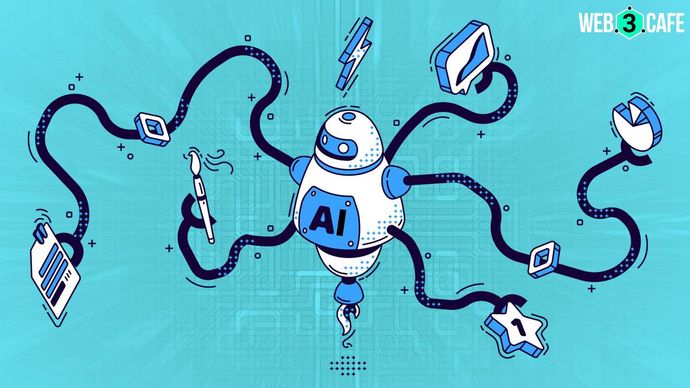Types of Artificial Intelligence you should know in 2023
Artificial Intelligence (AI) is a technology that is now a part of our daily lives and is used in various industries. It refers to the development of intelligent machines that can perform tasks that typically require human intelligence.

Highlights
- Machine learning and deep learning are key components of AI
- Categorisation of AI is based on capability and functionality
- Narrow AI, General AI, Super AI, etc., are some of the types of AI
Welcome to the realm where imagination meets innovation, i.e., AI. In this extraordinary frontier, machines not only learn but understand, adapt, and create, reshaping the essence of humanity itself. Step into the age of limitless possibilities.
AI: An integral part of modern lives
The use and scope of AI or Artificial Intelligence need no formal introduction in 2023, as it has immensely become a part of our lives. The AI- powered machines learn from past experiences and can perform tasks that are similar to what humans can do. In fact, it improves the speed, accuracy, and efficiency of any task. Further, AI relies on advanced algorithms and techniques to develop machines which are capable of making independent decisions. Machine learning and Deep learning are the key components of AI.
Types of artificial intelligence
Artificial Intelligence can be categorised based on functionalities and capabilities.
There are three types of Artificial Intelligence based on capabilities:
- Narrow AI
- General AI
- Super AI
Based on functionalities, there are four types of Artificial Intelligence:
- Reactive Machines
- Limited theory
- Theory of Mind
- Self-awareness
Capability-based Artificial Intelligence
Narrow AI
Narrow AI, also known as Weak AI, focuses on a specific task and has limitations beyond which it cannot perform. It specialises in a particular area of cognitive abilities and makes advancements within that domain.
Examples of Narrow AI include Apple's Siri, IBM Watson supercomputer, Google Translate, image recognition software, recommendation systems, spam filtering, and Google's page-ranking algorithm.
These AI systems excel in their specific tasks but struggle with tasks outside their predefined functions.
General AI
General AI, also known as strong AI, is capable of understanding and learning any intellectual task that humans can do. However, researchers have not yet achieved this level of AI.
To create strong AI, machines would need to possess a consciousness and a full range of cognitive abilities, which is still a challenge. Microsoft has invested $1 billion in OpenAI to advance general AI research.
Fujitsu's K computer and China's Tianhe-2 supercomputer are notable attempts to achieve strong AI, but it is uncertain when it will be released due to the complexity involved.
Super AI
Super AI is an advanced form of Artificial Intelligence that is smarter than humans and excels at every task.
It is a hypothetical concept where AI becomes so similar to humans that it not only understands our emotions and experiences but also has its own emotions, needs, beliefs, and desires.
Super AI can think, solve puzzles, and make decisions independently However, it is important to note that super AI is not a reality yet and remains a theoretical idea.
Functionality-based Artificial Intelligence
Reactive machine
A reactive machine is a basic form of artificial intelligence that doesn't have memory or the ability to learn from past experiences. It only works with the information it receives in the present moment. These machines perceive the world and react to it based on their specific tasks.
For example, IBM's Deep Blue, which defeated chess grandmaster, Garry Kasparov, is a reactive machine. It can recognise the chessboard pieces and make predictions about possible moves, but it doesn't have any memory of previous games or the ability to improve through practice. It focuses solely on the current state of the chessboard to make its decisions.
Limited memory
Limited Memory AI refers to AI systems that can learn from past data to make decisions, but their memory is short-lived. They can use the data they have observed for a certain period but cannot store it as part of their long-term experiences. This type of AI is used in self-driving cars.
In self-driving cars, limited memory AI observes the movements of other vehicles around them in real time and overtime. This collected data is combined with static information like lane markers and traffic lights.
It helps the car decide when to change lanes, avoid cutting off other drivers, or interact with nearby vehicles. Mitsubishi Electric is actively working on improving this technology for self-driving car applications.
Theory of mind
Theory of mind AI is an advanced concept in technology. It aims to develop AI systems that understand how people and objects in an environment can affect emotions and behaviors. This type of AI should be able to grasp human emotions, thoughts, and sentiments. Although there have been improvements in this field, Theory of mind AI is still a work in progress and not fully developed yet.
Self-awareness
Self-awareness AI is a theoretical concept that doesn't exist in reality yet. These AI systems would have an understanding of their own traits, states, and conditions, as well as the ability to perceive human emotions.
They would be more intelligent than humans. Also, these AI types not only understand and influence emotions in others, but also have their own emotions, needs, and beliefs. However, it's important to note that self-awareness AI is still a hypothetical idea and not something that currently exists.
